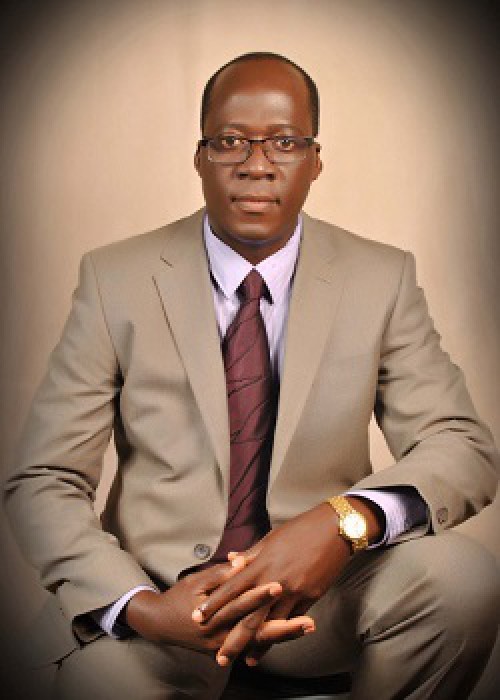
I am writing this article on a train speeding from Exeter to Aberdeen in the United Kingdom. This is effectively from one end of the country to the other. I was in Exeter for the sixth Annual Symposium and May Ball of the Medical Association of Nigerians Across Great Britain.
MANSAG was using the opportunity to support the work of Stroke Action, UK and Nigeria, pushing the issue of stroke to the front burner.
You may not know, but you should know that stroke is a big killer in Nigeria today and far more menacing than malaria. Stroke has affected the lives of many people and it is time to take a firm stand against it. Incidentally, the people suffering from strokes are getting younger in Nigeria and many other countries.
Actually, before I left for the symposium, a young man had presented to me with a stroke. He was in his 40s, with massive bleeding into the brain, requiring urgent surgery. He is not the first and will not be the last. Unfortunately, stroke is eating the young and producing ‘aged’ and ‘disabled’ people.
The key question was, of course, ‘How do we (you) prevent stroke’? And further ‘How do we treat stroke more efficiently’? Suffice to say that preventing stroke is the best treatment. So, things like controlling hypertension (high blood pressure), diabetes, stop cigarette smoking, reduce alcoholism, obesity and regular exercise are in your hands. Other things like developing stroke services, creating stroke units and training a multidisciplinary team are the purview of the government.
Before the meeting, people were invited go out for a ‘walk and run’ exercise programme over five kilometre in different parks in the UK. Some did and you, perhaps, didn’t. Some supported the event by donations and you, perhaps, didn’t.
Dr. Jacob Akoh, the outgoing President of MANSAG, and his wife did the run and walk respectively. They raised money for Stroke Action, UK and Nigeria to use in its advocacy on stroke, bringing you information and services. So, for us in Exeter, sorting out your priorities is important. Do you want to save money for a stroke or do you want to use your time preventing stroke?
Are you an Adam or an Adamu?
This is an interesting question that I came across on a Facebook page. It was actually talking about sex and whether you are a true love or a ‘Mugu’ being used for money. Are you for real or a fake? Are you living your life or someone else’s? Are you making things happen or a ‘follow, follow’? Are you alive or dead?
The new government in Nigeria
The vice president-elect met technocrats in the health industry recently to chart a path for health reforms under the new administration. In landmark meetings destined to change Nigeria forever, the incoming administration is making moves that may be of real benefit in the future. A key player in making this happen, Mr. Tunde Ayeye, came to the meeting, demonstrating the commitment of the VP-elect to real change. Also, an appreciation of the key role health care practitioners in the Diaspora can play in this stage of our development. In a way, one cannot wait for Adamu to leave the rock!
On Harry Libby
I was in Exeter at exactly the same time I was supposed to be at a thanksgiving ceremony in Abuja. Mr. Harry Libby and family had invited me to the Seventh Day Adventist Church event to celebrate his recovery from definite paralysis following an acute illness late last year.
Harry, a trainee nurse, was repatriated from the Philippines to Abuja when he lost power in both legs. Urgent investigations and treatment commenced and he went on a slow road to recovery. Miraculously, he called into the office about a month back, walking! It brought tears of joy to my eyes.
However, it is not the successes we have had in treatment of some patients that keep me awake at night. It is not the thanksgiving parties that make me wake up in the morning, full of beans and ready to face another day in the office. It is the avoidable deaths, the missed opportunities, the ones that got away or are maimed because of our action or inaction.
The few that we save do not compare or equal the many we could have helped in collective and affirmative action to cater to the majority. The reason for travelling to Exeter was to save more lives rather than celebrate the single life saved: actually by the Grace of God.
An eminent stroke specialist, Dr. James Martin, said that many lives are being saved in the UK and many other European countries through organised stroke care services and care delivered in dedicated stroke units. Stroke kills in Nigeria not because we are a bunch of Adamu, but because we need an Adam — a leader with a vision, the drive, commitment and passion for life! The lives of every Nigerian! However, each of us can be a leader and each should stand up (in your house, place of work, organisation and in the community) to develop creative ideas and programmes of benefit to all.
As we set off planning the next annual general meeting of the Nigerian Medical Association in the FCT, aimed at redefining, reinventing and refocussing the medical fraternity, I will be asking each and everyone: Are you an Adam or an Adamu?
